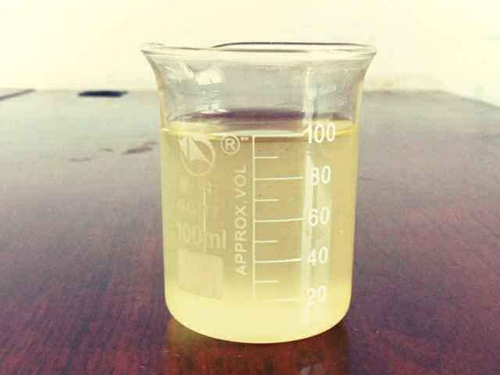Properties and Applications of Hydrolyzed Polymaleic Anhydride in Modern Industries
Understanding Hydrolyzed Polymaleic Anhydride Applications and Benefits
Hydrolyzed polymaleic anhydride (HPMA) is a versatile and significant polymer extensively used in various industrial applications. As a derivative of polymaleic anhydride, HPMA possesses unique properties that make it suitable for a range of sectors, including water treatment, oil and gas, and the cosmetic industry.
Chemical Structure and Properties
HPMA is synthesized by the hydrolysis of polymaleic anhydride, which is a cyclic anhydride polymer. The hydrolysis process results in a product that has functional carboxylic acid groups, enhancing its solubility in water and making it more reactive. This increased reactivity is beneficial in various applications, allowing HPMA to function as a dispersant, scale inhibitor, and corrosion inhibitor.
The molecular weight of HPMA can vary, impacting its physical properties and functional capabilities. Typically, HPMA exhibits excellent thermal stability, solubility in both water and organic solvents, and resistance to chemical degradation. Additionally, its low toxicity makes it a preferable choice in applications where human interaction is a concern.
Applications of Hydrolyzed Polymaleic Anhydride
1. Water Treatment One of the primary uses of HPMA is in water treatment processes. Its ability to inhibit scale formation in cooling towers, boilers, and other industrial systems is crucial for maintaining efficiency and reducing maintenance costs. The polymer effectively disperses calcium carbonate and other scale-forming minerals, preventing their accumulation on surfaces.
2. Oil and Gas Industry In the oil and gas sector, HPMA serves as a scale inhibitor and corrosion inhibitor in drilling fluids and production processes. Its effectiveness in low-concentration formulations helps to minimize the risk of scale-related issues, ensuring smoother operations and enhancing the longevity of equipment.
hydrolyzed polymaleic anhydride

3. Cosmetics and Personal Care Products HPMA is also utilized in various cosmetics and personal care products due to its film-forming properties. It can help improve the texture and feel of formulations, providing improved moisture retention and skin conditioning benefits. Its safety profile is an added advantage for its inclusion in products applied directly to the skin.
4. Adhesives and Sealants The adhesive properties of HPMA make it suitable for use in adhesives and sealants. Its ability to enhance adhesion and provide flexibility is vital in applications ranging from construction to automotive assembly.
5. Stabilizers for Emulsions HPMA acts as a stabilizer for emulsions in numerous formulations, ensuring uniform distribution of ingredients. This application is particularly important in various industrial processes that require consistent product quality.
Environmental Considerations
As industries increasingly focus on sustainability and environmental impact, the use of HPMA presents several advantages. Its low toxicity and biodegradability position it favorably compared to traditional chemicals used in similar applications. This makes HPMA an attractive option for industries aiming to reduce their environmental footprint while maintaining performance and efficiency.
Conclusion
Hydrolyzed polymaleic anhydride is a multifaceted polymer with essential applications across various industries. Its unique chemical properties and functionalities make it a valuable asset in water treatment, oil and gas production, cosmetics, and more. As industries continue to seek sustainable and effective solutions, HPMA stands out as a promising candidate that meets both performance needs and environmental considerations. With ongoing research and advancements in polymer chemistry, the potential applications and benefits of HPMA are expected to expand further, contributing to its significance in future industrial practices.
-
Understanding Polycarboxylic Acids: Properties, Applications, and Future PotentialNewsJul.28,2025
-
Scale Inhibitor Explained: How to Protect Your System from Limescale and Hard Water DamageNewsJul.28,2025
-
Scale and Corrosion Inhibitors: Essential Chemicals for Industrial Water System ProtectionNewsJul.28,2025
-
Polyaspartic Acid: A Biodegradable Polymer for Sustainable ChemistryNewsJul.28,2025
-
Isothiazolinones: A Versatile Antimicrobial Class with Industrial Power and Regulatory ChallengesNewsJul.28,2025
-
A Deep Dive into 2-Phosphonobutane-1,2,4-Tricarboxylic Acid (PBTC)NewsJul.28,2025





